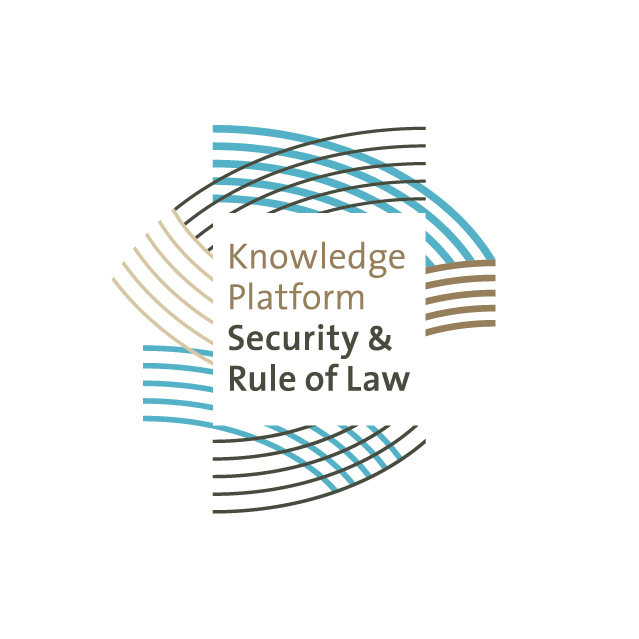The Platform’s 2017 Annual Conference is titled 'Achieving Security and Justice for All: Elephants in the Room', and will explicitly focus on the contentious things we usually ignore when working on peace, security & rule of law.

What's the big idea?
Talking about these contentious issues means openly discussing how economics, gender, militarism, power, identity, moralism, corruption, religion, silver-bullet solutions, education, capitalism, or the media influence or stifle progress. It means critically asking whether the assumptions that underpin peace, security and justice work need revisiting. And it means collectively envisaging how we can better meet people's needs in ways that are committed to human rights and genuine democracy.
There will be 20 workshops and presentations throughout the day by Ted Talkers, activists, governmental policy makers, UN, EU and AU experts, NGOs, academics, artists, agitators and authors who will interrogate current policies and programs in the security and rule of law field. The sessions will be a mix of debates, workshops and research presentations, with one series of events dedicated to innovation and another to creativity in improving and spreading knowledge in our field of work. Together, and with your input, they will provide a rich body of evidence and ideas to help improve the breadth, depth and quality of the knowledge in our field.
It will be a day that eschews the usual discussions. We know that peace and security work must be context specific, adaptive, conflict sensitive, political, long term, and committed to working from the bottom up as well as the top down. Instead of reconfirming these accepted truths, each session will be given license to acknowledge and discuss the things that usually go unsaid or untouched in our field - things that often prevent us from achieving the kind of security and justice outcomes that we want. Above all, we hope it will be an insightful and entertaining day.
What kind of questions should we expect?
- Is the current European fixation with migration threatening peace and security here as much as in source and transit countries?
- Are we being tokenistic when we work on gender, ignoring genuine systems of exclusion that sustain insecurity and injustice worldwide?
- Has the normalization of violence in western culture made imagining peace impossible?
- Do democracies always contribute to peace, security and the rule of law?
- Is SDG16 set up to fail, and how can we make the best use of it?
It will be a day of honest introspection, provocative debate and radical learning designed to constructively challenge assumptions. Last year's event was attended by 150 government reps, staff from the UN, EU, AU, and the World Bank, journalists, activists, Dutch embassy staff, think tanks, academics, and INGOs. This year, we do hope you can make it as well.
REGISTRATIONS ARE NOW CLOSED! Please keep an eye out for the digital magazine with a recap of the Conference and its most important insights.
Who's speaking? Have a look:
Keynote:

Dr. Henrik Urdal is Director of the Peace Research Institute of Oslo (PRIO), where Prof. Galtung pioneered the field of Peace Studies. Since 2010 he has been editor in chief of the Journal of Peace Research. His recent work has focused on inequality and violence, the findings of which are central to the upcoming World Bank and UN report on conflict prevention. Dr. Urdal holds a Ph.D in Political Science from the University of Oslo and was one of the early proponents of the links between demographic pressures ('youth bulges') and violence.
Speakers:
Staffan I. Lindberg is Director of the Varieties of Democracy (V-Dem) Institute and Professor at the Department of Political Science, University of Gothenburg. He is a Wallenberg Academy Scholar, a member of the Young Academy of Sweden, Research Felow at the QoG Institute, and Senior Advisor in the International Law and Policy Institute. He holds a doctorate from the Department of Political Science from Lund University. He is the author of Democracy and Elections in Africa (2006), and the editor of Democratization by Elections: A New Mode of Transition? (2009), and he has published articles on inter alia women’s representation, political clientelism, voting behaviour, party and electoral systems, democratization, popular attitudes, and the Ghanaian legislature and executive-legislative relationships.
Basma Abdel Aziz is a psychiatrist, writer, and sculptor. A long-standing vocal critic of government oppression in Egypt, she is the author of several works of nonfiction. In 2016 she was named one of Foreign Policy's Global Thinkers for her debut novel, The Queue, which was also nominated for the longlist for the 2017 Best Translated Book Award. She lives in Cairo.
Patrick Alley is the co-founder of Global Witness where, since posing as a timber buyer in Global Witness's first investigation into the Thai Khmer Rouge timber trade in 1995, he has taken part in over fifty field investigations in South East Asia, Africa and Europe. Patrick has worked on Global Witness’s campaigns on conflict resources, notably former Liberian President Charles Taylor’s ‘arms for timber’ trade, the minerals trade in Eastern DRC and more recently the Central African Republic, as well as providing strategic direction for Global Witness’s work on forest issues, especially challenging industrial scale logging and land grabbing in the tropics. Global Witness were nominated for a Nobel Peace Prize in 2003 for their campaign to combat 'blood diamonds.'
Fidelma Donlon, the Registrar of the Kosovo Specialist Chambers, is a highly experienced senior court administrator and a respected academic and lawyer. As part of her longstanding career in international criminal justice, Dr Donlon has extensive experience as a senior manager at various criminal tribunals as well as significant experience in justice sector reform and judicial capacity building projects. Previously, she served as Deputy Registrar for the Special Court for Sierra Leone, and worked extensively on criminal justice and national judicial reform in Bosnia and Herzegovina.
Catherine Marchi-Uhel was appointed Head of the International Impartial Independent Mechanism Investigating Serious Crimes in Syria in July 2017. Catherine has worked for more than 27 years in public service and in the judiciary, including for the United Nations, in the fields of criminal law, transitional justice and human rights. Previously, Marchi-Uhel served as a judge in France, with the United Nations Interim Administration in Kosovo and at the Extraordinary Chambers in the Courts of Cambodia.
Shilo Shiv Suleman, an Indian contemporary artist, author, Ted Talker, INK Fellow, and founder and director of the Fearless Collective, an artistic movement formed in response to gender-related issues in India. The Fearless Collective has expanded to provoking dialogue on gender and rights through participative storytelling in fragile and conflict affected areas in Pakistan, Nepal, Tunisia, Lebanon and South Africa amongst other places. Suleman has also designed art installations for conferences and festivals such as Burning Man.
Professor Tilman Brück is the Founder and Director of ISDC. He is also Visiting Professor at the London School of Economics and Political Science (LSE), Team Leader – Development Economics at IGZ near Berlin, Distinguished Senior Fellow at the Stockholm International Peace Research Institute (SIPRI), Research Affiliate of the Institute for Social Sciences at the University of Lisbon, and Research Fellow at the Institute for the Study of Labor (IZA) in Bonn. Professor Brück is the co-founder and co-director of the „Households in Conflict Network (HiCN)“ and the coordinator of the Marie Curie action “Training and Mobility Network for the Economic Analysis of Conflict“ (TAMNEAC).
Marcel Smits, the European Program Director at the Institute for Economics and Peace. Previously Marcel was the Policy Specialist on Private Sector and Conflict at Oxfam, as well as the Director of the Forum on Early Warning and Early Response, the Institute for International Mediation and Conflict Resolution and the Institute for War and Peace Reporting-NL, and the Country Director for the Nonviolent Violent Peaceforce in Sri Lanka during the civil war where he worked with UN agencies and local groups to protect vulnerable groups and negotiate with rebel and paramilitary groups for the release of child soldiers.
Dr. Brad Evans, a critical theorist, political philosopher and author specializing on violence. The author of over ten books and edited volumes, Dr. Evans is a Reader in Political Violence at the School of Sociology, Politics and International Studies at the University of Bristol. He is the founder and director of the History of Violence project, and also an editor at the Los Angeles Review of Books. Prior to this he ran a series on violence in the New York Times. His inaugural guest appearance on Russell Brand’s podcast show Under the Skin charted at No. 1 on iTunes.
Larry Attree is Head of Policy at Saferworld. He is a globally recognised expert on conflict issues. Drawing on extensive peacebuilding experience in the Balkans, Africa, Asia and the Pacific, he has input extensively into global negotiations on peace and development issues including the 2030 Agenda. His expertise covers aid and conflict, stabilisation, counter-terrorism, governance and statebuilding, arms control and armed violence reduction, reintegration, community security, security and justice sector development and conflict sensitivity. He is the author of many recent Saferworld reports and articles on counter-terror and stabilisation, including new case studies on counter-terror in Kenya on Lamu and Garissa Counties, and the 2017 long-read ‘Shouldn’t you be Countering Violent Extremism?’
Dr. Alastair Reed is Acting Director of the International Centre for Counter-Terrorism. Prior to this he was Research Coordinator and a Research Fellow at ICCT, joining ICCT and Leiden University’s Institute of Security and Global Affairs in the autumn of 2014. Previously, he was an Assistant Professor at Utrecht University, where he completed his doctorate on research focused on understanding the processes of escalation and de-escalation in Ethnic Separatist conflicts in India and the Philippines.
And more to be announced! Keep up to date by following our newsletter or by emailing Steven Lanting.






